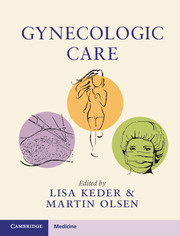Book contents
44 - Physician Health
from Section 6 - General Considerations
Published online by Cambridge University Press: 01 February 2018
Summary
Introduction
Physician Health is also characterized as physician well-being and relates to physician satisfaction. Becoming a physician is an exciting but arduous process. It requires many years of delayed gratification and hard work with intense situations, long hours, and interactions with many different type of people in a variety of high stress situations. Maintaining enthusiasm and personal spirit can be a challenge at any point in the process, but physicians are typically taught to “grin and bear” because stress is a professional expectation. The old idiom of physician learning “see one, do one, teach one” set the profession up for the trickle down learning and practice pattern of “I did this; now you do this.” Somewhere in the process, physicians learned how to be resilient, maintain empathetic nature, continue to learn and develop skill sets, and manage professional and personal lives.
Physicians are not as good at this balance and maintaining resilience as was once thought. Recent reports from many different agencies and polls report that physicians at all points of their careers are feeling increasingly dissatisfied with the profession, burned out with their day-to-day function, and are unhappy at home. The numbers are staggering over 50 percent. In fact, many resources report an epidemic of physician suicide (over 400 annually) occurring in the United States; this is thought to be grossly underreported and tracked. Physician wellness has obvious effects on personal well-being, the care of patients, and the management of practices, not to mention the potential devastating impact on families and loved ones.
The first step in dealing with this issue is to recognize and address the problem. The fact that a chapter in this book is being dedicated to this subject is an important step into helping to regain control of physicians’ professional and personal lives. Physician reinvigoration and the creation of balance that leads to improved satisfaction, overall positive effects on well-being, and the development of strategies to maintain one's own physician health are important. This chapter will review current evidence on the situation, help to define terms and terminology, and provide suggestions for the improvement of the situation for one's self and one's colleagues.
- Type
- Chapter
- Information
- Gynecologic Care , pp. 421 - 429Publisher: Cambridge University PressPrint publication year: 2018

